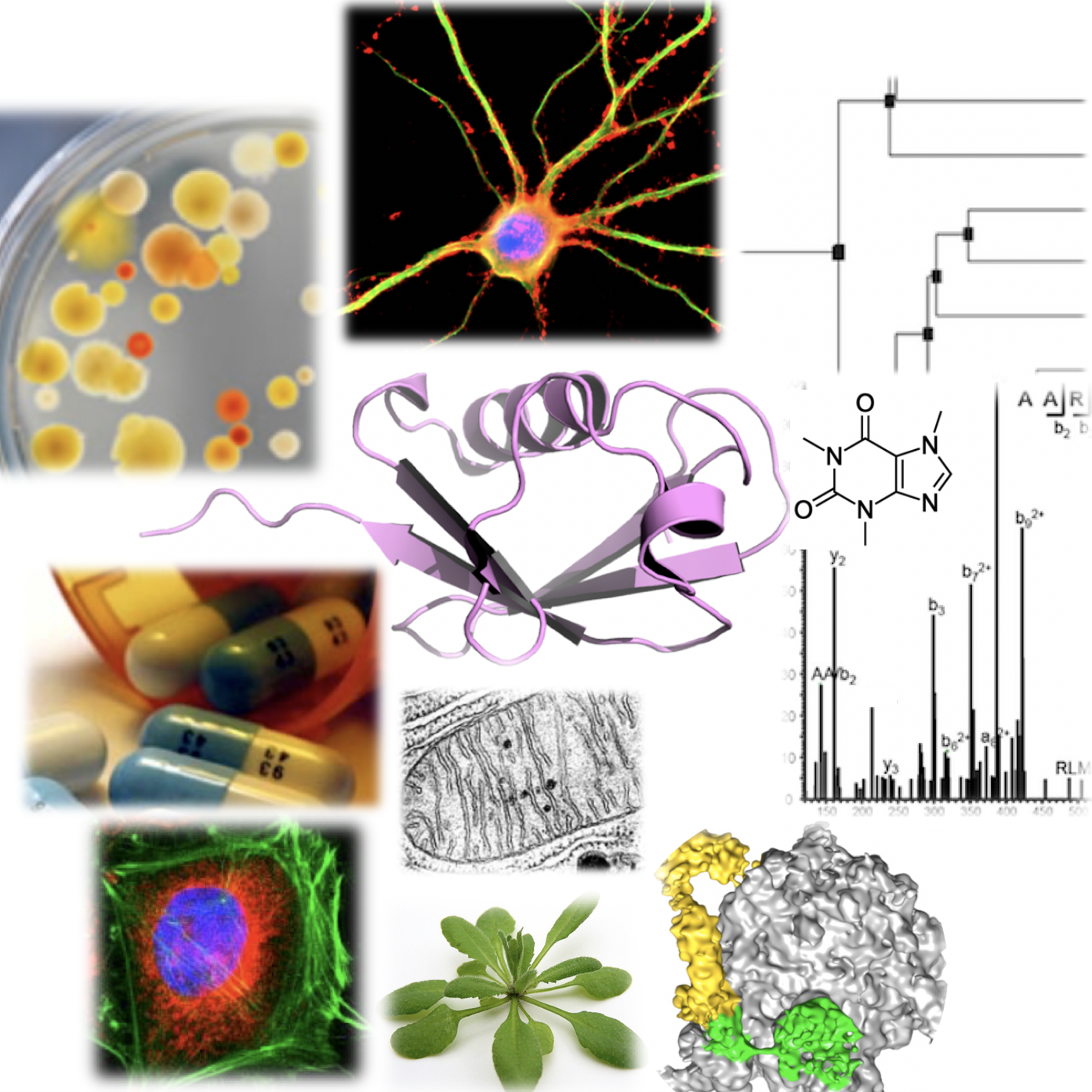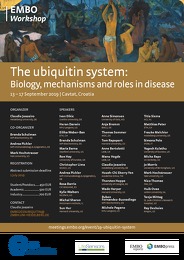About the Workshop

The post-translational modification of proteins with ubiquitin, discovered in the 1980s and awarded with the Nobel Prize in 2004, remains among the most rapidly developing fields in cell and molecular biology.
Virtually every cellular process is regulated by ubiquitin and ubiquitin-like proteins (UBLs), such as SUMO. In addition to playing such regulatory roles, ubiquitin mediates disposal of aberrant proteins in various protein quality control pathways. It is therefore not surprising that several hundred E3 ligases (enzymes that confer specificity in substrate modification with ubiquitin/UBLs) are encoded in the human genome, and that mutations affecting ubiquitin pathways lead to many human diseases. Of relevance, thanks to research progress in this field, drugs that interfere with ubiquitin-mediated proteolysis, such as the proteasome inhibitor, Velcade, and the modulator of the SCF E3 ligase cereblon, Thalidomide, are now successfully used for treating cancer. Moreover, there has also been an explosion of deubiquitinase inhibitor drugs announced recently, and PROTACS–compounds designed to direct degradation of specific proteins by acting as adaptors to E3 ligases—are beginning to show great promise.
This Workshop aims to address remaining gaps and stimulate further progress in ubiquitin research, by facilitating scientific interactions among both leaders and newcomers in the field in multiple settings and by other means. Featured research will broadly cover relevant approaches, including novel enabling technologies and different model organisms. In addition to helping expand and deepen our understanding of ubiquitin/UBLs at molecular, cellular and organismal levels, we expect the conference to facilitate translation of basic findings into medical and biotechnological applications.
About EMBO Courses and Workshops
EMBO Courses and Workshops are selected for their excellent scientific quality and timelines, provision of good networking activities for all participants and speaker gender diversity (at least 40% of speakers must be from the underrepresented gender).
Organisers are encouraged to implement measures to make the meeting environmentally more sustainable.














